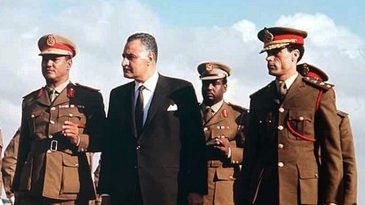Egyptian-Sudanese Relations at a Crossroads
Al-Masry Al-Youm, Egypt, August 27
Any observer of history and politics knows that Sudan is a strategic extension of Egypt and that Egypt is a strategic extension of Sudan. The relationship between the two countries has been an important one since the dawn of time. But these relations changed and evolved over the years, not always for the better. The ups and downs have been directly affected by the nature of the regimes in both Cairo and Khartoum. Regardless, Egypt has always viewed Sudan as one single unit and refrained from siding with one party over another. These bilateral relations have witnessed three key milestones throughout history. The first and most notable one took place after the July Revolution of 1952, when the Unionist Party headed by Ismail Al-Azhari abandoned the idea of the “unity of the Nile Valley,” turned its back on the idea of uniting with Egypt and declared Sudan’s independence. Historians agree that Egypt’s realignment toward the Soviet Union, under the leadership of Nasser and Naguib, inherently came at the expense of unity with Sudan. The second milestone was the 1969 rise to power of Jaafar Nimeiry, who led Sudan to its best relations with Egypt. Nimeiry refused to join other Arab countries in boycotting Egypt following its signing of a peace deal with Israel. He worked closely with the governments of Nasser, Sadat and Mubarak until he was ousted from power in 1985, during the Sudanese civil war. His relations with Egypt’s leaders were so close that Nimeiry sought asylum in Cairo, where he was honored and dignified until returning to his country in 1999. In one of my conversations with him during his exile in Egypt, Nimeiry recalled how close the relationship between the Egyptian and Sudanese people had been, especially during the 1967 setback, when Sudan supported Egypt both militarily and diplomatically. The third milestone was the so-called National Salvation Revolution of 1989, inspired by the ideology of the Islamic Front and the Muslim Brotherhood, which brought to power Omar al-Bashir. The coup was a clear turning point in Sudanese-Egyptian relations, as Bashir’s regime adopted outwardly hostile stances against Cairo. The results were immediate: Bashir shut down the Cairo University in Khartoum, revoked agreements with the Egyptian government and launched border disputes with Egypt, especially along the Halayib Triangle. When the Bashir regime that divided Sudan fell in 2019, the people of Sudan and Egypt breathed a sigh of relief. The new leadership, under the Transitional Military Council, began rebuilding Khartoum’s relations with Cairo with the hope that the two peoples would build a better future for themselves and the region. This attitude was reflected in the Sudanese position during the recent negotiations over the Renaissance Dam [in Ethiopia], reminding all of us, on both sides of the border, that the historical ties between our two peoples are long-lasting and deeply rooted. – Mustafa Elfeki (translated by Asaf Zilberfarb)


